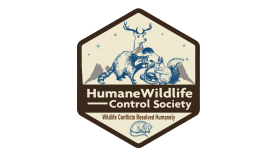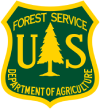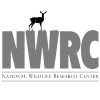Humane Wildlife Control in Eugene, OR
The Humane Wildlife Control Society recommends non-invasive solutions to resolve human-wildlife conflicts. This includes:
Determining if the issue needs to be addressed at all
Opting for preventative measures first
Opting for wildlife exclusion as opposed to trapping
If trapping is the only way to solve the problem do so humanely
The Humane Wildlife Control Society screens candidates prior to recommendation. Our process requires any company we recommend to meet the following criteria:
Is properly licensed in Oregon for wildlife control
Carries appropriate business licenses and insurance
Complies with all Oregon laws and regulations for wildlife control
Adheres to the humane principles listed above.
In Eugene, Oregon we recommend Humane Wildlife Removal Eugene for professional wildlife control services. This is a private company that charges for their services.
Contact Information:
Pacific Wildlife Control
541-255-2308
If you have any wildlife issues that can be handled by the state government agency for free, the Oregon Wildlife Commission can help.
State Contact Information: (503) 947-6000
The State Department of Agriculture may also be able to address your wildlife problem for no charge.
USDA Contact Information: (503) 986-4550
Community-Based Wildlife Control Efforts in Eugene, Oregon Importance of Community-Based Efforts Key Community-Based Wildlife Control Initiatives Workshops and Seminars: Local organizations and the city offer educational programs focused on understanding wildlife behavior and coexistence strategies. Native Landscaping Initiatives: Encourage residents to use native plants, which support local wildlife while deterring pests. Engage locals in wildlife monitoring and data collection, contributing valuable insights for urban wildlife management. Wildlife-Resistant Infrastructure: Install community-funded fencing, netting, and other barriers in sensitive areas. Community Mediation: Establish forums for residents to discuss wildlife concerns and share successful strategies. Challenge: Limited funding and resources for comprehensive wildlife management. Challenge: Engaging a diverse population with varied interests.
Introduction
Eugene, Oregon, renowned for its natural beauty and biodiversity, faces unique challenges in managing human-wildlife interactions. To address these, community-based efforts have become essential. This essay explores how Eugene harnesses local collaboration and innovative strategies to implement effective wildlife control.
Community involvement is crucial for sustainable wildlife management, as it encourages local stewardship, fosters environmental education, and promotes ethical, non-lethal methods of control.
Wildlife Education Programs:
School Partnerships: Collaborate with schools to integrate wildlife education into the curriculum, fostering awareness from a young age.
Habitat Preservation and Restoration:
Community Clean-Up Events: Organize regular events to maintain clean, safe habitats and reduce human-wildlife conflicts.
Citizen Science Projects:
Partner with universities and research institutions to provide training and resources for participants.
Non-Lethal Deterrent Programs:
Public Resource Sharing: Provide access to humane deterrent methods, such as motion-activated lights and noise devices, through communal programs.
Conflict Mitigation and Resolution:
Wildlife Hotlines: Maintain hotlines for reporting wildlife issues and obtaining advice from trained professionals.
Collaboration and Partnerships
Local Government and NGOs:
Facilitate discussions between governmental bodies and non-governmental organizations to align strategies and resources.
University Collaborations:
Partner with the University of Oregon for research and innovation in wildlife management practices.
Challenges and Solutions
Resource Allocation:
Solution: Encourage community fundraising and the use of volunteers to support initiatives.
Public Awareness and Participation:
Solution: Tailor programs to address different community needs and promote inclusivity.
Conclusion
Eugene’s community-based wildlife control efforts emphasize collaboration, education, and innovation. By engaging residents and utilizing local expertise, Eugene aims to achieve a harmonious balance between urban life and natural ecosystems. These initiatives not only protect wildlife but also strengthen community ties and promote sustainable living.







